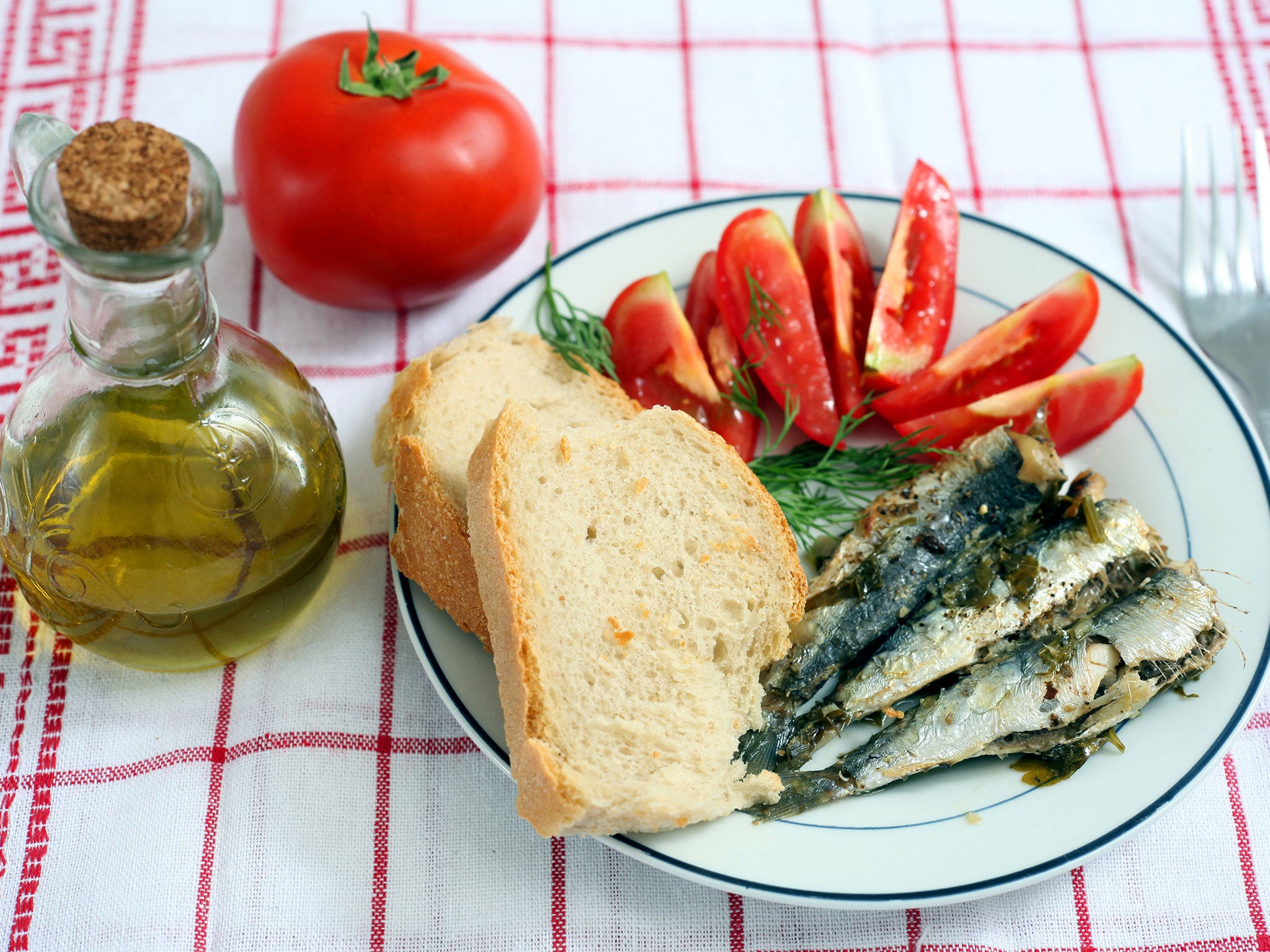Mediterranean diet might work far better than cutting fat to lose weight, says study that shakes up diet industry
Experts have said that the study could be important in challenging many of the central myths of diets

Your support helps us to tell the story
From reproductive rights to climate change to Big Tech, The Independent is on the ground when the story is developing. Whether it's investigating the financials of Elon Musk's pro-Trump PAC or producing our latest documentary, 'The A Word', which shines a light on the American women fighting for reproductive rights, we know how important it is to parse out the facts from the messaging.
At such a critical moment in US history, we need reporters on the ground. Your donation allows us to keep sending journalists to speak to both sides of the story.
The Independent is trusted by Americans across the entire political spectrum. And unlike many other quality news outlets, we choose not to lock Americans out of our reporting and analysis with paywalls. We believe quality journalism should be available to everyone, paid for by those who can afford it.
Your support makes all the difference.Eating as much as you want of a Mediterranean diet won’t make you gain weight – and might be far better than more restrictive regimes, new research has suggested.
Many popular diets might be entirely wrong because they recommend cutting down on fat but don’t distinguish between “good” and “bad” fats, the Spanish study published in the journal The Lancet Diabetes & Endocrinology claimed.
What’s more, sticking with a relatively fatty, olive oil-rich diet might be a more effective way of losing weight than cutting out fat entirely.
The study looked at a total of 7,447 men and women in Spain, between 2003 and 2010. All of them had Type 2 diabetes or were at high risk of heart disease, and 90 per cent of them were overweight or obese.
Each of the participants was randomly told to follow one of three diets – an unrestricted Mediterranean diet that was especially rich in olive oil, a similar diet that focused on nuts, or a diet cutting down on all kinds of fat.
The study found that those who followed the olive oil-rich diet lost the most amount of weight after five years. While all of those in the study shed some weight, those in the first group lost an average of 1.9 pounds.
Though curbing all fats did lead to people losing more weight than those on the nut-rich diet, the low-fat diet did prove a far less effective way of becoming more trim. Waist circumference increased by 1.2cm on average among the low-fat group, compared with 0.85cm in the olive oil group and 0.37cm in the nuts one.
The researchers behind the study said that it should lead to a complete re-think of the way that people currently diet.
“More than 40 years of nutritional policy has advocated for a low-fat diet but we're seeing little impact on rising levels of obesity,” said lead researcher Dr Ramon Estruch, from the University of Barcelona in Spain. “Our study shows that a Mediterranean diet rich in vegetable fats such as olive oil and nuts had little effect on bodyweight or waist circumference compared to people on a low-fat diet.
“The Mediterranean diet has well-known health benefits and includes healthy fats such as vegetable oils, fish and nuts. Our findings certainly do not imply that unrestricted diets with high levels of unhealthy fats such as butter, processed meat, sweetened beverages, deserts or fast-foods are beneficial.”
Writing in response to the journal article, US nutrition expert Professor Dariush Mozaffarian, from Tufts University in Boston, said that the findings should be enough to get rid of “outdated” guidelines on fat consumption.
“Dietary guidelines should be revised to lay to rest the outdated, arbitrary limits on total fat consumption,” said Prof Mozaffarian.
“Calorie-obsessed caveats and warnings about healthier, higher-fat choices such as nuts, phenolic-rich vegetable oils, yoghurt, and even perhaps cheese, should also be dropped.
“We must abandon the myth that lower-fat, lower-calorie products lead to less weight gain.”
Prof Mozaffarian added: “The fat content of foods and diets is simply not a useful metric to judge long-term harms or benefits. Energy density and total caloric contents can be similarly misleading.
The research showed that the fat content that people eat only has a tiny effect on their body weight – only changing their weight by about 0.1kg per year.
“Overall, the differences between groups in terms of fat intake were relatively small and the weight changes, unsurprisingly, not very different,” she said. “If you increase the fat content of your diet with foods high in mono-unsaturated fat you may, or may not, lose a teeny bit more weight than a 'not-quite-so-high-fat' diet.
“It is impossible from this study to draw any conclusion about the impact of the low fat diets on body weight since each group consumed more than the UK average (35 per cent fat) and way more than the World Health Organisation recommendation (30 per cent fat).”
Join our commenting forum
Join thought-provoking conversations, follow other Independent readers and see their replies
Comments